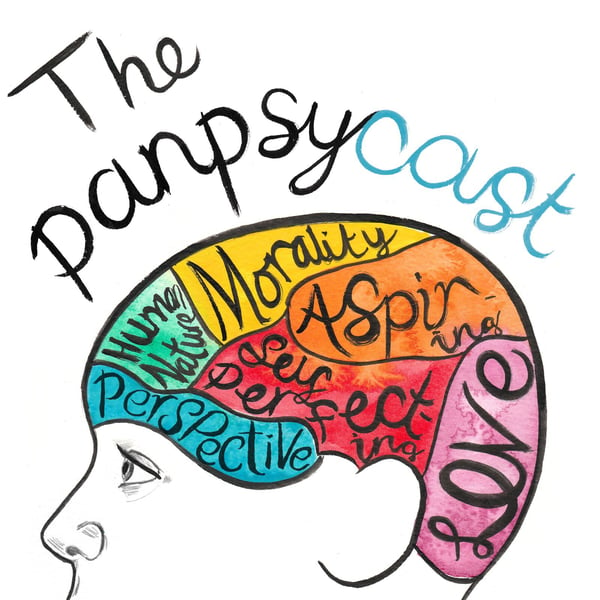Episode 34, The Peter Singer Interview (Part II)
The Panpsycast Philosophy Podcast
Jack Symes | Andrew Horton, Oliver Marley, and Rose de Castellane
4.8 • 604 Ratings
🗓️ 11 March 2018
⏱️ 58 minutes
🧾️ Download transcript
Summary
Please visit our Patreon page and show your support! That’s www.patreon.com/panpsycast. Everything you could need is on www.thepanpsycast.com! Please tweet us your thoughts at www.twitter.com/thepanpsycast.
Peter Singer is often described as the world's most influential philosopher. Professor Singer is currently the Ira W. DeCamp Professor of Bioethics in the University Center for Human Values at Princeton University and Laureate Professor at the University of Melbourne. His work has helped to launch the animal rights and effective altruism movements, as well as making significant contributions in bioethics.
Peter Singer is most famous for his developments to the normative ethical theory utilitarianism. Loosely stated, utilitarianism is the view that we should maximise happiness and pleasure, and reduce pain, suffering and unhappiness, for the greatest number of humans and/or non-human animals. He is known in particular for his book Animal Liberation, in which he argues in favour of vegetarianism, and his essay Famine, Affluence, and Morality, in which he argues in favour of donating to help the global poor.
Practical Ethics, The Life You Can Save, The Most Good You Can Do, One World: The Ethics of Globalisation, Ethics in the Real World - Peter Singer's list of bestselling publications is extensive - but his work goes beyond the written page. Peter Singer is also the founder of the charity The Life You Can Save and co-founder of Animals Australia.
Transcript
Click on a timestamp to play from that location
| 0:00.0 | Part 2. Further analysis and discussion. |
| 0:17.2 | Okay, so I know you've grappled with this next question throughout your life, perhaps best |
| 0:23.3 | known as the demandingness objection. |
| 0:26.4 | So if we live utilitarian lives, we end up giving the majority of our income and assets |
| 0:31.5 | to those in need. |
| 0:32.9 | And there is too much poverty that it could be argued. |
| 0:37.2 | And so it could be said that the demands of utilitarianism are just too high. |
| 0:41.4 | What would you say in response to that criticism? |
| 0:44.6 | And can we draw the line on what we should do? |
| 0:48.9 | I think the reason that utilitarianism is so demanding in the world in which we're living today is that there is something very basically wrong with the world in which we're living today, and that is that there are more than a billion affluent people in the world living very comfortable lives, and there, you know, something close to a billion, |
| 1:13.6 | people living in extreme poverty. And given that discrepancy and given that relatively few of the |
| 1:21.5 | billion affluent people are doing anything significant to help the people in extreme poverty, then those of us who think |
| 1:29.8 | about this issue ethically, particularly from a utilitarian perspective, do face a situation |
| 1:36.1 | where if we were to do what was absolutely the right thing in every respect, we would, |
| 1:43.1 | as you say, be giving away the great |
| 1:44.7 | majority of our income because we would still be better off than the people we were helping |
| 1:49.5 | and we would be making a big difference. Now, I do think that that is the implication of |
| 1:55.6 | utilitarianism. I don't shy away from that. At the same time, I maybe moderate the impact of that by what I said a little earlier, that is that it doesn't follow that we ought to blame people who are not giving away the majority of their income. Let's say you talk to somebody about this and they say, oh, yes, I give away 10% of my income to |
| 2:18.3 | effective organizations that are helping people in extreme poverty. Well, should you say, |
| 2:23.8 | oh, what, only 10%? You're wealthy enough to give away 80%. So you're a really bad person. |
| 2:29.6 | I would say no, because that person who's giving 10% is giving far more than the great majority of her or his fellow citizens, and ought to be praised for that. |
| 2:41.3 | At the same time, you might say, you know, well, that's terrific that you're giving away 10%. |
... |
Please login to see the full transcript.
Disclaimer: The podcast and artwork embedded on this page are from Jack Symes | Andrew Horton, Oliver Marley, and Rose de Castellane, and are the property of its owner and not affiliated with or endorsed by Tapesearch.
Generated transcripts are the property of Jack Symes | Andrew Horton, Oliver Marley, and Rose de Castellane and are distributed freely under the Fair Use doctrine. Transcripts generated by Tapesearch are not guaranteed to be accurate.
Copyright © Tapesearch 2025.

